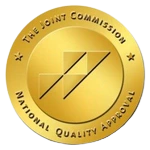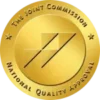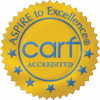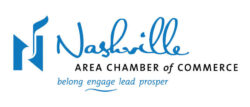What to Bring to Treatment
Starting addiction treatment is a courageous decision, and preparing for that first day can feel overwhelming. One of the most common questions we hear is: What should I pack?
Whether you’re entering a day treatment program, intensive outpatient care (IOP), or staying in a sober living residence, knowing what to bring to addiction treatment helps ease the transition and reduce unnecessary stress.
It’s completely normal to feel unsure about what’s allowed or what you might need.
Every treatment center has slightly different guidelines, and depending on your level of care, your daily routines and environment can vary.
Still, universal essentials—like comfortable clothing, personal care items, and emotional support tools—will help you feel more grounded as you begin recovery.
This guide is here to make the process easier.
We’ll walk you through everything you need to pack (and what to leave at home), whether you’re attending a structured outpatient program or supporting a loved one going through treatment.
You’ll also learn how to prepare any required documents, what kinds of comfort items can make a difference, and what Tulip Hill Recovery provides, so you don’t overpack.
Let’s get started with the practical side of healing—so you can begin treatment with clarity, confidence, and peace of mind.
Rehab Packing List Essentials:
Getting ready for treatment often starts with packing a suitcase.
While packing may seem like a small task, it’s an important part of setting the tone for your recovery journey.
Whether you’re attending a day treatment program, living in a sober living residence, or participating in intensive outpatient care, knowing what to take can make the transition smoother and less stressful.
Here’s a general rehab packing list that covers the essentials for most programs:
Clothing: Bring about 7–10 days’ worth of weather-appropriate, comfortable clothes. Include activewear, sleepwear, and modest outfits suitable for group settings. Avoid clothing with references to drugs, alcohol, or offensive language.
Personal Care Items: Pack alcohol-free, unopened hygiene products such as a toothbrush, toothpaste, shampoo, soap, deodorant, and feminine hygiene products. Many programs allow you to bring your toiletries, but some may also provide the basics.
Important Documents: Bring a valid photo ID, insurance card, and a list of medications you take. You may also need a prescription card or medical documentation, especially if medications are part of your treatment.
Comfort Items (Optional): Notebooks, books, photos, or small items from home can help you feel grounded. These are especially helpful if you’re staying in sober living or spending long hours at a day treatment facility.
Always check with Tulip Hill Recovery Admissions Team before packing—rules and allowances may vary slightly.
In general, knowing what to bring to drug rehab or outpatient care can give you a sense of preparedness and calm as you step into a new phase of healing.
What to Wear to Outpatient or Day Treatment
When deciding what to pack for rehab, clothing should be practical, comfortable, and recovery-appropriate.
In outpatient or day treatment settings like PHP or IOP, you’ll be participating in group therapy, individual sessions, and possibly light physical activities. Dressing in a way that supports focus, comfort, and movement can make your daily experience smoother and more enjoyable.
Pack weather-appropriate layers for about 7–10 days.
Choose clothes that are breathable and comfortable for sitting during sessions, walking, or participating in mindfulness or movement-based activities like yoga.
If you’re staying in a sober living residence, remember essentials like undergarments, socks, and sleepwear.
What can you bring to rehab in terms of clothing, including rules on what to avoid?
Refrain from packing clothes that display:
Drug or alcohol references
Gang-related symbols
Violent, explicit, or offensive imagery or language
These types of clothing can be distracting or triggering for others and may not be permitted in a therapeutic environment.
Consider bringing a few outfits suitable for light exercise, closed-toe shoes for group outings or walks, and a sweater or hoodie for cooler spaces.
While most outpatient programs don’t require formal attire, showing up clean, modestly dressed, and ready to engage communicates respect for your recovery and others around you.
If you’re unsure about a specific clothing item, our admissions team can help clarify.
Packing the right wardrobe helps you feel prepared and focused, allowing you to direct your energy toward healing and personal growth.
When preparing for rehab, it’s important to pack your toiletries and hygiene items thoughtfully to ensure a comfortable and hygienic stay.
Most treatment centers, including Tulip Hill Recovery, have guidelines for what you can bring to rehab in terms of personal care products.
You’ll need to bring alcohol-free, unopened hygiene items. For your safety and the safety of others, all toiletries must be in their original, sealed packaging.
Avoid products containing alcohol, as they can interfere with your treatment or trigger cravings.
Here’s a recommended list of items to pack:
- Toothbrush and toothpaste
- Shampoo and conditioner (alcohol-free)
- Soap or body wash (unscented or mild)
- Deodorant (non-aerosol)
- Hairbrush or comb
- Lip balm and lotion (moisturizing products without alcohol)
- Sanitary products (pads, tampons, menstrual cups)
If you are staying in sober living or attending outpatient care, Tulip Hill may provide basic hygiene products to help get you started.
During your stay at rehab, it’s important to bring personal items that help you stay emotionally grounded and supported throughout your treatment.
When deciding what to bring to addiction treatment, consider packing items that help you relax and focus, such as:
- Books and novels – Uplifting reading material or recovery-focused books to keep your mind engaged
- Notebooks or journals – Great for self-reflection, journaling your thoughts, or documenting your progress
- Sketch Pads, coloring books, or art supplies – Creative outlets like drawing or coloring can provide stress relief and encourage emotional expression
- Puzzles or brain games – A way to keep your mind active and focused during downtime
In sober living or group therapy environments, small comforts like these can be incredibly helpful.
They provide emotional support and help you stay connected to yourself during what can sometimes feel like an overwhelming process.
These items also allow you to express your creativity or reflect on your thoughts during individual therapy sessions or group discussions.
It’s essential to feel at ease while going through PHP or IOP treatment. Personal items that bring comfort can be an anchor, reminding you of your goals and helping you stay positive.
Required Documents and Prescription Medications
When preparing for drug rehab or treatment at Tulip Hill Recovery, it’s crucial to bring the necessary documents and prescription medications.
These items ensure a smooth and efficient intake process and help our staff provide the best possible care for your recovery journey.
Required Documents
Please bring the following with you:
- A government-issued ID (such as a driver’s license or passport)
- Your health insurance card and any additional insurance details
- A list of current medications, including dosage information and frequency of use
- If applicable, medical records or any important health information relevant to your treatment
Prescription Medications
If you are currently on prescription medications, please be sure to pack them carefully:
- All medicines should be in their original packaging, with clear labeling from the pharmacy
- Include a written list of medications, including dosage, instructions, and the prescribing physician’s contact information.
- Ensure that medications are clearly documented for our staff to review
At Tulip Hill, we manage medicines as part of our integrated approach to treatment. Our medical team will assess and coordinate all medications, ensuring they are compatible with your treatment plan.
It’s important to note that not all medications are suitable for use during rehab, so adjustments may be made if necessary.
What Not to Bring to Rehab
While preparing for treatment, it’s important to know what not to bring to rehab.
Certain items are prohibited to ensure that the focus remains on your recovery and that the environment stays safe, supportive, and free from distractions.
At Tulip Hill Recovery, we maintain a structured, healing environment where everyone can concentrate on their treatment goals.
To maintain a safe and effective recovery setting, the following items aren’t allowed:
- Drugs or alcohol – Any form of substance use, including over-the-counter medications with alcohol, is strictly prohibited
- Weapons, knives, or blades – For the safety of all clients and staff, weapons of any kind are not permitted.
- Open medications – All medications must be in their original, sealed packaging (open or unapproved prescriptions will not be accepted)
- Food or drinks—Outside food and beverages are not allowed unless approved by staff for health and safety reasons.
- Drug paraphernalia – Any items associated with drug use or abuse, including pipes, needles, or other devices, are prohibited.
While electronics such as phones, laptops, and tablets may not be allowed during certain treatment phases to help reduce distractions, electronic policies vary by program.
If you are unsure what devices are acceptable during your stay at Tulip Hill, our admissions team can clarify.
Limiting the use of personal electronics is an essential step in helping you remain focused on healing and avoiding triggers from the outside world.
The primary goal at Tulip Hill Recovery is to provide a therapeutic environment that supports your emotional and physical well-being. By following these guidelines and focusing on your treatment, you can fully embrace the healing process.
What can you bring to rehab?
Anything that promotes your recovery—comfort items, personal documents, and necessary medications—while leaving distractions and potential risks behind.
Care Packages: What to Send to Someone in Rehab
While rehab is a time of reflection and healing, receiving a package from loved ones can provide comfort and motivation.
At Tulip Hill Recovery, we understand the positive impact small acts of care can have, and we encourage families and friends to send a thoughtful package while adhering to our guidelines.
Here are some acceptable items you can include in a care package for someone in treatment:
Personal hygiene products (if necessary): Small, travel-sized toiletries that meet the rehab’s guidelines can also be sent. Just ensure they are unopened and alcohol-free
Books or journals: Reading material that’s uplifting or related to recovery can provide comfort and inspiration. Journals are a great way to encourage self-reflection and personal growth
Approved snacks: Depending on the treatment center’s policy, certain snacks may be allowed. Non-perishable, healthy snacks are a great choice—think nuts, granola bars, or dried fruits. Always check the list of approved items before sending.
Emotional Impact
Receiving a care package can lift spirits and remind people that they are supported and loved. It’s a simple but powerful gesture that encourages recovery and resilience.
Your thoughtful package can help your loved one stay connected to the world outside and feel encouraged throughout their treatment.
Sending what to send to someone in rehab can have a lasting positive effect on their recovery process. It reinforces their commitment to healing and reminds them that they are not alone in their journey.
Start Drug and Alcohol Rehab Today at Tulip Hill Recovery
If you or someone you love is struggling with addiction, don’t wait another day to take that first step. At Tulip Hill Recovery, we provide the compassionate care and clinical expertise you need to reclaim your life and start fresh.
Whether you need detox, structured treatment, or ongoing support, our team is here to guide you every step of the way.
Choosing treatment can be an opportunity for a fresh start, offering privacy, distance from triggers, and a focused environment for recovery.
Frequently Asked Questions about Drug and Alcohol Rehab
The right level of care depends on your individual situation and needs.
-
If you require medical supervision for withdrawal, our medically supervised detox is the safest first step.
-
If you need structured, daily support but don’t need 24/7 care, PHP is a good choice — offering intensive therapy during the day without overnight stay.
-
If you need flexibility to balance work, school, or family commitments while getting treatment, IOP provides several sessions per week (often evenings or days) with a focus on relapse prevention, therapy, and peer support.
Yes — Tulip Hill works with most major insurance providers across Tennessee. We offer a free, confidential insurance verification to help you determine your coverage and understand any potential out-of-pocket costs.
If insurance doesn’t cover everything, Tulip Hill offers private pay options and financing/payment plans to help make care accessible/
Families are strongly encouraged to participate. We provide family therapy sessions and education to help loved ones understand addiction, improve communication, rebuild trust, and support long-term recovery.
Tulip Hill provides a comprehensive, holistic approach including:
- Individual therapy (e.g., Cognitive Behavioral Therapy, Dialectical Behavior Therapy) Tulip Hill Recovery
- Group therapy for peer support and shared experiences Tulip Hill Recovery
- Family therapy to rebuild relationships and heal family dynamics Tulip Hill Recovery
- Trauma-informed care (including EMDR therapy for trauma/PTSD) Tulip Hill Recovery
- Holistic wellness supports, such as mindfulness, meditation, yoga, nutrition counseling, and experiential activities to support emotional and physical health. Tulip Hill Recovery
Start Your Journey to Healing Today

Call or message us

Free assessment

Insurance check

Choose a start date
Get Family Support Now
Supporting Families Through Recovery
We understand addiction affects the whole family. Our comprehensive family program helps rebuild trust and restore relationships.
Weekly Family Therapy Sessions
Educational Workshops
Support Groups
Communication Skills Training
 |
Medically Reviewed By:
Board-Certified Psychiatrist and Addictionologist
|
 |
Clinically Reviewed By:
Board Certified Clinical Social Worker
|
Our Verifications & Affiliations
Addiction Treatment Therapies
Yes, Your Insurance Covers Detox and Rehab Treatment.
Get Family Support Now
Supporting Families Through Recovery
We understand addiction affects the whole family. Our comprehensive family program helps rebuild trust and restore relationships.
Weekly Family Therapy Sessions
Educational Workshops
Support Groups
Communication Skills Training









